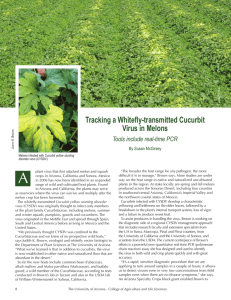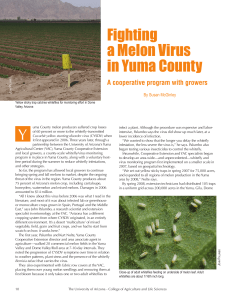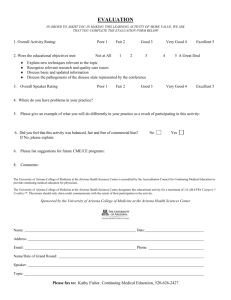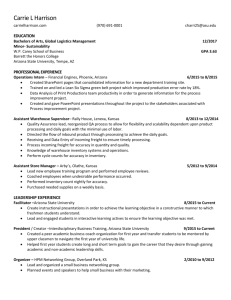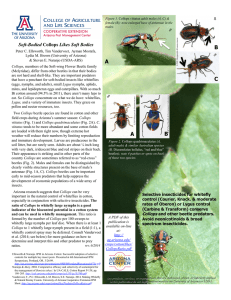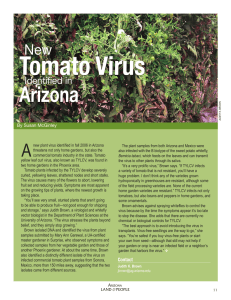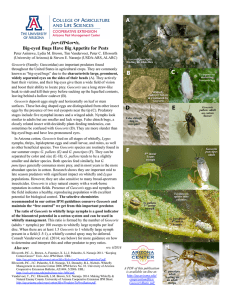LOGIC MODEL for NOLTE, K. and S. BEALMEAR
advertisement
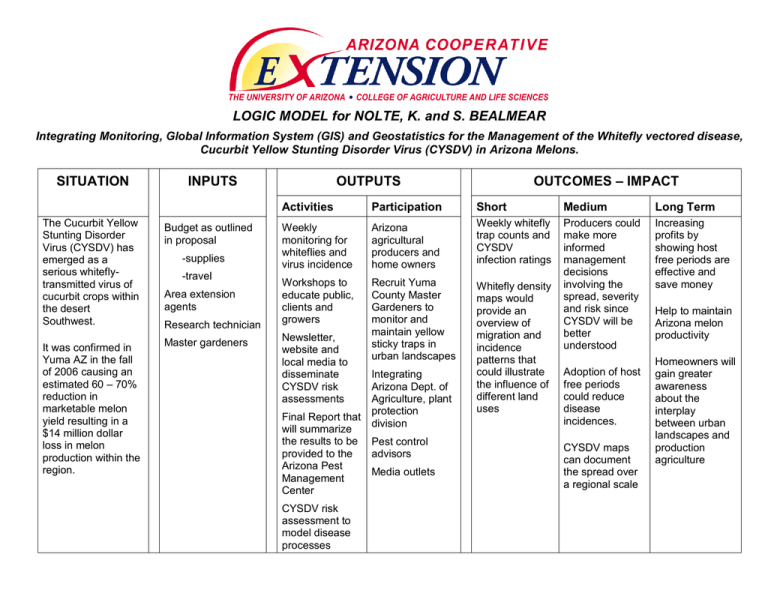
LOGIC MODEL for NOLTE, K. and S. BEALMEAR Integrating Monitoring, Global Information System (GIS) and Geostatistics for the Management of the Whitefly vectored disease, Cucurbit Yellow Stunting Disorder Virus (CYSDV) in Arizona Melons. SITUATION INPUTS The Cucurbit Yellow Stunting Disorder Virus (CYSDV) has emerged as a serious whiteflytransmitted virus of cucurbit crops within the desert Southwest. Budget as outlined in proposal It was confirmed in Yuma AZ in the fall of 2006 causing an estimated 60 – 70% reduction in marketable melon yield resulting in a $14 million dollar loss in melon production within the region. Master gardeners -supplies -travel Area extension agents Research technician OUTCOMES – IMPACT OUTPUTS Activities Participation Short Medium Long Term Weekly monitoring for whiteflies and virus incidence Arizona agricultural producers and home owners Weekly whitefly trap counts and CYSDV infection ratings Workshops to educate public, clients and growers Recruit Yuma County Master Gardeners to monitor and maintain yellow sticky traps in urban landscapes Whitefly density maps would provide an overview of migration and incidence patterns that could illustrate the influence of different land uses Producers could make more informed management decisions involving the spread, severity and risk since CYSDV will be better understood Increasing profits by showing host free periods are effective and save money Newsletter, website and local media to disseminate CYSDV risk assessments Integrating Arizona Dept. of Agriculture, plant protection Final Report that division will summarize the results to be Pest control provided to the advisors Arizona Pest Media outlets Management Center CYSDV risk assessment to model disease processes Adoption of host free periods could reduce disease incidences. CYSDV maps can document the spread over a regional scale Help to maintain Arizona melon productivity Homeowners will gain greater awareness about the interplay between urban landscapes and production agriculture
